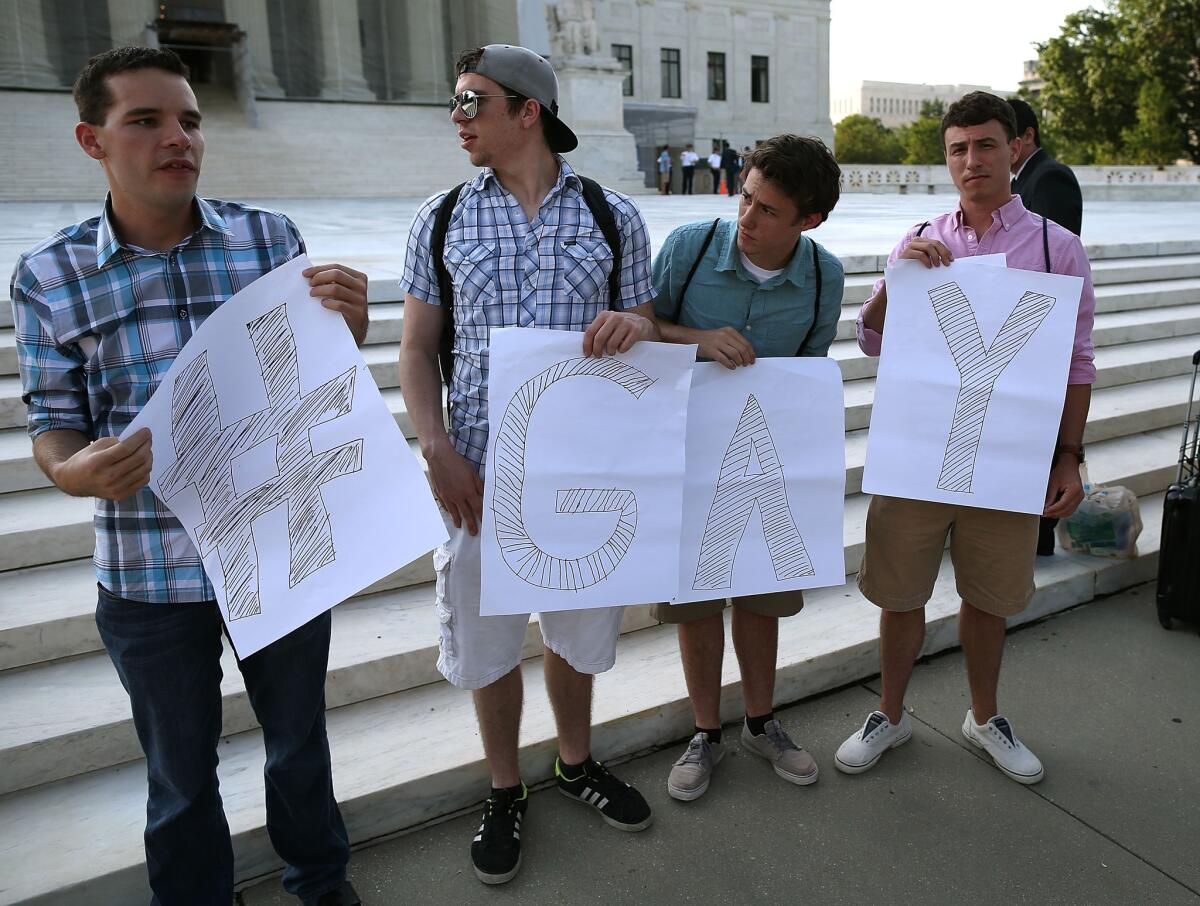Prop. 8: ‘This is far from over,’ says law prof who supported ban

SAN FRANCISCO -- Although the Supreme Court cleared the way for same-sex marriages to resume in California, the procedural decision also leaves open the likelihood of further litigation over Proposition 8.
“This is far from over, I can tell you,” said Chapman University law professor John Eastman, who supports the same-sex marriage ban.
The high court ruled ProtectMarriage, the sponsors of Proposition 8, lacked standing or the legal right to appeal the 2010 ruling by Chief U.S. District Judge Vaughn R. Walker striking down the 2008 ballot measure.
That means the only ruling left in place is Walker’s injunction, which ordered state officials to stop enforcing Proposition 8.
As gays and lesbians celebrated the decision, lawyers for the opposing side were already calculating how to frame an effort to limit the reach of Walker’s decision to the two same-sex couples who filed the lawsuit against Proposition 8.
District judges generally are supposed to apply injunctions narrowly to the parties before them unless they are deciding a class-action lawsuit or unless a broad order is the only way to protect the plaintiffs who sued. The Proposition 8 challenge was not filed as a class action.
Eastman said Proposition 8’s backers can use language from the court’s other gay marriage decision, overturning a key section of the federal Defense of Marriage Act, to argue Walker got the law wrong.
Eastman said the supporters of Proposition 8 could challenge the scope of Walker’s order in federal district court or in state court under a provision of the California Constitution that prevents state officers from refusing to follow laws without an order from an appeals court.
But Santa Clara University law professor Gerald Uelmen, an expert on the state constitution, said the provision cited by Eastman does not apply to constitutional amendments such as Proposition 8.
“I think they would be laughed out of state court,” Uelmen said.
He said he saw “no obstacle” in the California constitution to prevent Gov. Jerry Brown from refusing to enforce Proposition 8 statewide.
“We have a federal court ruling that says Proposition 8, a section of the California Constitution, violates the federal constitution, and that ruling stands,” Uelmen said. “I expect it to be fully implemented by all state officers.”
Andy Pugno, chief counsel for ProtectMarriage, also signaled an upcoming fight to limit the reach of Walker’s injunction.
“While it is unfortunate that the court’s ruling does not directly resolve questions about the scope of the trial court’s order against Prop. 8, we will continue to defend Prop. 8 and seek its enforcement until such time as there is a binding statewide order that renders Prop. 8 unenforceable,” Pugno said.
UC Irvine Law School Dean Erwin Chemerinsky, meanwhile, predicted ProtectMarriage would fail in any effort to limit the injunction.
Wednesday’s Supreme Court decision “ends Proposition 8 and I think within a couple of months same-sex couples will be able to marry in California.”
ALSO:
Former LAPD partners avoid jail time in perjury case
Angry Chris Brown denies hit-and-run charge on Twitter
Michael Hastings was not working on Jill Kelley story, wife says
Twitter: @mauradolan
maura.dolan@latimes.com
More to Read
Sign up for Essential California
The most important California stories and recommendations in your inbox every morning.
You may occasionally receive promotional content from the Los Angeles Times.











